Civil Liberties, Criminalizing Dissent, FBI Intrusion, Guantanamo, Habeas Corpus, Human Rights, Political Prisoner, Surveillance, Targeting Muslims, Torture, Truth to Power
Podcast: Play in new window | Download
Updates:
————-
In Memory:
The remarkable and heroic progressive lawyer Len Weinglass died on March 23. Among his cases were the Chicago 8, the Ellsberg case and the Cuban 5. Listen to the 4 interviews Law and Disorder did with him over the last 4 years. He was our close comrade and will be missed by his friends and all those seeking a better world. – Michael Ratner.
————-
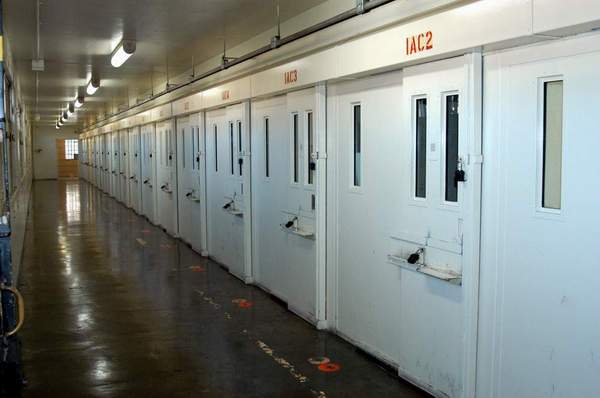
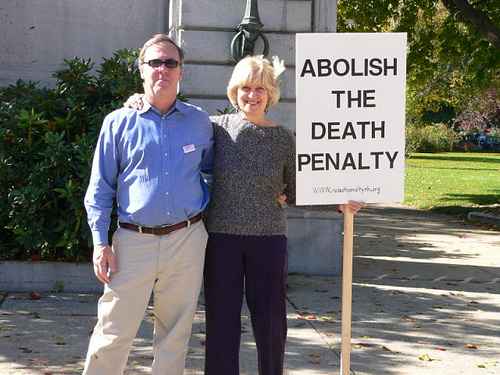
Death Penalty Abolished In Illinois
Last week, Governor Pat Quinn of Illinois signed into law SB3539, which repeals the death penalty in that state. This development is yet another in what appears to be signal a trend of moving away from capital punishment. Early last year we covered the American Law Institute’s declaration that the death penalty in this country has been a failure. Listeners may recall that the A.L.I. created the intellectual framework and justification for the current capital justice system. The movement away from this most final form of punishment seems to be due in large part to the public’s increased awareness about its inherent flaws such as great racial disparity on who gets executed and for what reason. Publicity around exonerations stemming from DNA evidence has also added to general awareness of procedural errors in the system.
Attorney Charles Hoffman:
- In 2003, Governor Ryan cleared out death row, he granted to the 167 men and women on death row and pardoned four.
- that prompted the legislature to pass a modicum of reform. The governor afterward assembled a commission that recommended 85 reforms.
- The legislature passed five or six. The legislature also created a death penalty reform study commission.
- One of the reforms was that all confessions in police custody had to be videotaped in murder cases.
- No matter what safeguards you implement, there’s no system that can prevent the conviction and condemning of an innocent person.
- Prosecutors around the state were asking for the death penalty in cases that weren’t death penalty prosecutions just so the state would bear the costs rather than the county.
- The legislature is cash-strapped and we were wasting millions and millions of dollars prosecuting capital cases when here in Illinois we have the very strict alternative of life without parole.
- Final Report: Death Penalty Legislative Study Committee. Illinois Death Penalty Reform Study Commission PDF
- After Governor Ryan cleared out death row in 2003, Illinois put 17 men on death row. 2 had committed suicide, which left 15 on death row when Governor Quinn signed the abolition bill and also granted sentence commutation to all 15. He commuted their death sentences to life without parole.
- As the problems with the death penalty have been exposed, the arbitrariness, the racism, as mistakes have gone into public consciousness, juries have been rejecting the death penalty.
- Illinois has become the 16th state to abolish the death penalty, following on the heels of New Mexico, New Jersey and New York. The federal government and the military do have it.
- The “deathbelt” in this country is in the South and Texas, and is just a legacy of slavery in this country.
- Most executions occur in former slave states. One obvious flaw of the death penalty, studies have shown the death penalty is most likely to be inflicted in a case when the victim is white and the odds go up even further if the defendant is black or Hispanic.
- Its very gratifying to get rid of this barbaric practice. I represented 35 men and women who were sentenced to death. I do the direct appeals. I’ve had one client executed, I’ve had one client go home.
- Some states have made illegal purchases of the drug. (lethal injection drug shortage)
- Some states are using just one drug, a massive overdose of a barbiturate.
- Life without parole is very draconian, it means there’s no prospect for rehabilitation.
Guest – Assistant Defender in the Supreme Court Unit at the Office of the State Appellate Defender, and member of the board of directors of the Illinois Coalition to Abolish the Death Penalty.
———


Communities Battle Against Gas Drilling To Protect Water, Way of Life
Environmental community groups from New York, New Jersey and Pennsylvania continue to band together and try to protect the Marcellus Shale watershed from natural gas drilling and hydraulic fracturing. The EPA has stated it will investigate how hydraulic fracturing impacts water supplies and water quality in New York State yet the drilling moratorium ends this June. The shale is believed to hold some of the world’s largest deposits of natural gas, and those that want to mine this resource say it will reduce dependence on foreign oil and boost the economy. However, many have shown this statement to be false as the natural gas from the United States is being sold to foreign countries such as Norway and France.
Ninety percent of the New York City’s drinking water comes from ground zero of where various oil companies want to drill into the Marcelle Shale for natural gas. Environmental and public health costs are enormous for each well. Every time a well is drilled, the companies use an estimate of 5 to 9 million gallons of water. Each time a well is fractured, it’s another 5-9 million gallons of water, a well can be fractured multiple times. Up to 275 different toxic chemicals are used in the process and after the well is drilled, there are millions of gallons of industrial waste, it’s essentially radioactive water. 40-70 percent of this water stays underground. The hydro-fracturing process has no federal regulating body. Some of the companies involved are Halliburton, Chesapeake Energy, Fortuna, and Talisman Hess.
Tracy Carluccio:
- My organization has been working on the issue for a few years to try to keep gas drilling from moving ahead.
- Right now there is a moratorium in place on the Delaware River Watershed. It took a year and a half to get that into place. Regulatory measures that are in place now for gas drilling are not doing their job.
- The bottom line is we’re facing an industry that wants to move ahead.
- The industry is very strong. There are international concerns.
- They’re backed by the government in many ways, they enjoy subsidies.
- This industry is going to move like heck to drill everyplace gas can be gotten.
- The Delaware River Watershed has its origins in the Catskill region of New York State.
- The east and west branches come together in Hancock, New York.
- 330 miles from Hancock to the Atlantic Ocean.
- The watershed is 13 thousand square miles and includes four states. It’s overseen by an agency that was born out of water wars.
- Back in the 1950s, all the states were suing each other about who would get water for development.
- In 1961, there was a Supreme Court decree and compact and President Kennedy signed a document that began the Delaware River Basin Commission. As a result of this compact, a large part of the Delaware River goes to New York City.
- There have been regulations federally (Represented by the Army Corp of Engineers) and regionally laid out by the Delaware River Basin Commission
- New York moratorium on gas drilling is tied to late June when there is supposed to be a new draft of the Draft Supplemental Generic Environmental Impact Statement on high volume hydraulic fracturing.
- In order to crack the rock to get at the gas is intrinsically polluting and there’s no way out of that.
- The question of how to stop it is tied to the scientific analysis free from bias.
- Without that bottom up movement, without that cry for government regulators, the industry would be moving ahead exactly as planned.
Guest – Tracy Carluccio, deputy director with Delaware Riverkeeper Network. Delaware Riverkeeper – a watershed wide advocacy program, Delaware Riverkeeper Network takes a strong stance on regional and local issues that threaten water quality and the ecosystems of the Delaware River and its watershed. In fact, Delaware Riverkeeper Network is the only advocacy organization working throughout the entire Delaware River Watershed.
—–
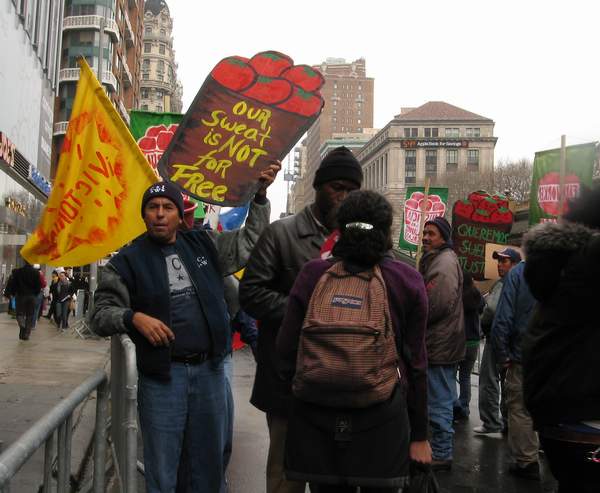
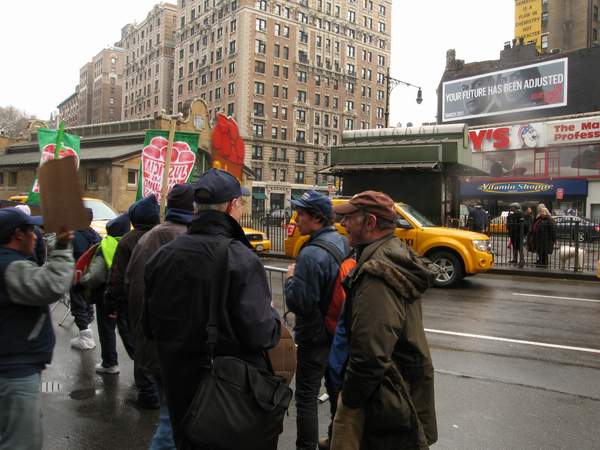
Farmworkers, Consumers Protest Trader Joe’s Demanding Fair Labor Standards for Farmworkers
Late last month, a busload of farm workers from Florida joined members of the NYC Community Farm worker Alliance at Trader Joe’s Upper West Side store. Men and women who pick tomatoes under very harsh conditions demand to be treated more humanely and with improved farm labor wages. Our own Michael Ratner was at the demonstration, we hear some of the interviews.
———————————————————————-
Civil Liberties, Criminalizing Dissent, FBI Intrusion, Guantanamo, Habeas Corpus, Human Rights, Prison Industry, Supreme Court, Targeting Muslims, Torture, Truth to Power
Podcast: Play in new window | Download
Updates:
—
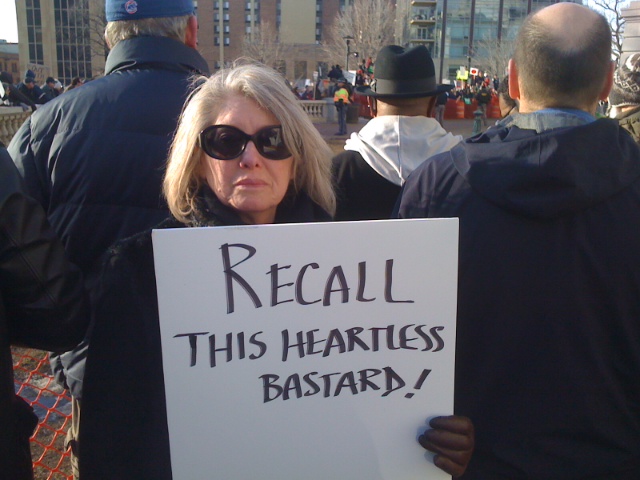

Wisconsin Labor Demonstrations Update
Organized labor is in the cross-hairs to be taken apart by the American elite. Last month, 10 thousand people continued a multi- day occupation of the Wisconsin State Capitol building while tens of thousands chanted outside. Meanwhile the country is gripped by the drama unfolding in Wisconsin and it has inspired unions in other states to move in solidarity. Among those states are Montana, Indiana, Ohio, Michigan, Pennsylvania and New Jersey. Listeners may remember that Wisconsin trade unions have already conceded to wage and benefit cuts. Now the state is voting to repeal Section 11170, the Public Employee Bargaining Chapter. Update: Wisconsin GOP Allows State To Fire Employees For Strikes, Walkouts
Attorney Lester Pines:
- Governor Walker is clearly a stocking horse for the far right wing of the Republican Party.
- I’m not surprised at his behavior, he behaved this way as a Milwaukee County executive.
- I told people he was going to try to repeal section 11170 which is the Public Employee Bargaining Chapter
- What’s at stake is an attempt by the governor and the legislature to strike at the heart of the Wisconsin tradition of organized labor.
- Public employee bargaining has been in Wisconsin for 50 years. This is an attempt to tear apart generations of how Wisconsin operated.
- On a federal level, this is an attempt to wipe away outside groups that democratic and progressive candidates.
- Wisconsin has a bi-annual budget. The legislation is part of budget repair bill. In that legislation is a bill to eliminate all collective bargaining for all municipal and school district employees as well as for state employees.
- There will be no bargaining if this bill passes. The only thing that can be bargained with is wages.
- The bill also imposes a cap on wages. These are designed to essentially make it impossible for public employee unions to function in any meaningful way.
- Scott Walker didn’t talk about what he would actually do.
- If we look at the mass demonstrations in Madison. These are the biggest demonstrations I’ve ever seen here.
- Impeachment is impossible because Republicans control the legislature and Senate, however he can be recalled.
- The Democrats can’t be arrested in a criminal sense,
- Governor Scott Walker has reignited the progressive movement in Wisconsin.
- Until you get these Republicans out of office they’re going to do a lot of damage. They’re nihilists. They care nothing for public services. They care only for what their corporate puppeteers want them to do.
- It looks like this whole anti-public union movement was actually planned out amongst all these new governors.
Guest – Labor attorney Lester Pines, in practice since 1975, he leads the Litigation area, concentrating in civil trials, criminal defense, labor & employment, and business. A Fellow in the American College of Trial Lawyers, Mr. Pines is a highly respected civil and criminal litigator who has appeared in courts throughout Wisconsin and litigated federal matters in Wisconsin, Illinois, Iowa, Ohio and New York.
————————–
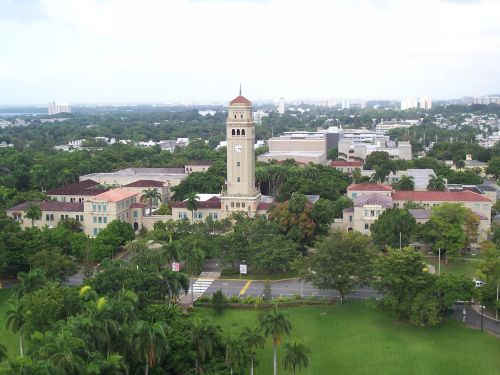

Human Rights Crisis Continues In Puerto Rico
More than a year ago nearly 100 thousand people took to the streets of San Juan, Puerto Rico to protest the lay off of about 17 thousand public employees. The demonstration shut down all state-owned enterprises including the island’s schools and colleges. Two days before that strike the governor passed a bill aimed at dismantling the Bar Association. Protesters were warned that if they stopped commerce, particularly the docks and airports, that action would be sanctionable to federal law. Now, as human rights violations continue, as students and faculty demonstrate against dismantling of progressive curriculum and tuition hikes. ACLU of Puerto Rico, “Human Rights Crisis in Puerto Rico: First Amendment Under Siege.” Law and Disorder Interview with Judy Berkan October 2009
Attorney Judy Berkan:
- Wholesale attack on institutions of Puerto Rican society where any dissent could be lodged.
- The Puerto Rican Bar Association, a real forum for those without a voice. Attacks have come to the Bar Association, elimination of mandatory Bar membership and imposed draconian restrictions upon the Bar Association. They took away a great deal of our funding.
- The president of the Puerto Rican Bar Association was jailed for speaking out against a lawsuit that could take away life insurance from poor lawyers.
- There’s a one month prohibition on leafleting and expression in the University of Puerto Rico.
- The closing of the legislative chambers. Right now there is a US Department of Justice investigation and talk of a trusteeship of the police department here.
- The use of the tactical operations of the police to repress dissent has been intensified.
- All of our public spaces are being closed off to legitimate dissent, while people engaged in peaceful dissent are being attacked.
- Austerity: Part of the remedy of the economic crisis there was an increase in tuition of 800.00. But much more at stake.
- More than that there is question of the vision the University of Puerto Rico will take in the future.
- The emphasis appears to be on privatization as it is throughout the government. We been suffering these programs since 2009.
- We were the guinea pigs. There’s more violence here, if we occupied the state house here, we would’ve been met with pepper spray, gas and beatings as we were when we attempted to demonstrate outside the state house last June.
- The economic programs are really the model that’s being used by Republican governors in the US
- The University situation is really wallowing in the wind without a real solution.
- The Bar Association and their presence is very crucial to public debate in Puerto Rico.
- I think people are getting tired, we do have 2 more years left of this administration.
- The police department is still in the hands of a former FBI agent who has openly encouraged violence against protesters. We have a raging crime rate.
- What’s distressing for all of us here who care about these matters is the media black out in the United States.
- Are we training people to be managers at McDonald’s or are we training people to think about the future of Puerto Rico?
Guest – Attorney Judith Berkan, is a partner in the San Juan law firm of Berkan/Mendez. She specializes in government misconduct litigation and employment discrimination cases. Berkan worked as an attorney in New Haven, Connecticut before going to Puerto Rico as the staff attorney for the Puerto Rico Legal Project of the National Lawyers Guild, now the Puerto Rico Civil Rights Institute. For twenty-seven years, she has been teaching, primarily in the Constitutional Law area, at the Inter American University Law School in San Juan, Puerto Rico.
A frequent speaker and author of many articles on civil rights issues, she was the President of the Human Rights Commission of the Puerto Rico Bar Association in the mid-1990?s and a member of the Commonwealth Supreme Court’s task force on gender discrimination.
————————–

Left Forum 2011
The 2011 Left Forum convenes this Spring, March the 18 to the 20th. This is the largest annual conference of a broad spectrum of left and progressive intellectuals, activists, academics, organizations and the interested public. Conference participants come together to engage a wide range of critical perspectives on the world, to discuss differences, commonalities, and alternatives to current predicaments, and to share ideas for understanding and transforming the world.
Guest – Stanley Aronowitz Distinguished Professor of Sociology at CUNY Graduate Center, where he is Director of The Center for the Study of Culture, Technology and Work. He has taught at Staten Island Community College, University of California-Irvine, University of Paris, Columbia University, and University of Wisconsin.
——————————————————————————————–
Civil Liberties, Criminalizing Dissent, FBI Intrusion, Gaza, Human Rights, Surveillance, Targeting Muslims
Podcast: Play in new window | Download
Updates:
—-
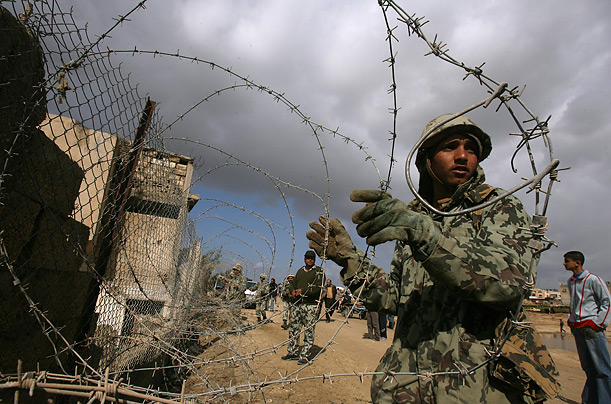
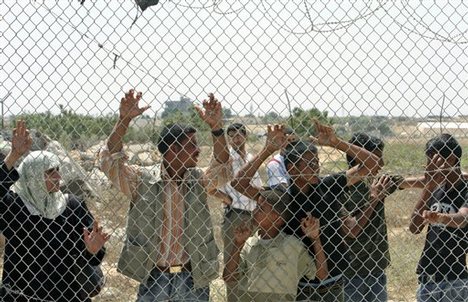
Middle East Protests – Israel / Palestine
Uprisings have continued to sweep through the middle east from Tunisia, Egypt, Libya, Bahrain, Yemen, Iran, Iraq and China. Economic hardships and desperate living conditions are partly the cause for some of the mass protests. In one article describing the Wisconsin protests, the journalist wrote, there were many voices this last month that raised the cry, “We are all Egyptians!”
Governments are said to be scrambling to squelch popular dissent. How will these protests begin to reshape countries in the middle east and and what government structures are standing by to replace decadent tyrannies and corrupt monarchies? How are Palestinians in Gaza and the West Bank responding to the massive dissent in nearby Arab countries?
Ali Abunimah:
- The events over the past weeks have been historic and we still don’t know how they’re all going to play out.
- The aspirations of Tunisians, Egyptians, Libyans, Jordanians, Palestinians are very clear.
- What remains to be seen is if they succeed in completing the revolutions. There is a strong counter-revolutionary push, not just from old regime elements but also from the United States.
- The mass uprising was sudden, but its important to know that there were Egyptian activists risking their lives for many many years to lay the ground for the uprising.
- The upper echelons of the Army are fully implicated in the old regime.
- You have a parade of Americans going to Egypt trying to minimize any shift in the region away from the Israeli-American axis and more into an independent orbit.
- The only guarantee is the continued mobilization of Egyptian people, of Egyptian workers.
- One of the myths in the American media is that this uprising is entirely about internal domestic issues.
- The Rafah crossing into Palestine needs to be open permanently, the situation at the border normalized.
- Egypt’s revolution and Israel: “Bad for the Jews” Ilan Pappe, The Electronic Intifada, 14 February 2011
- The view from Israel is that if they indeed succeed, the Tunisian and Egyptian revolutions are very bad. They make the Israeli occupation and apartheid policies in Palestine look like the acts of a typical “Arab” regime.
- The war in Gaza probably could not have been carried out without Egyptian complicity.
- In Palestine, the complete death of the peace process. The Palestine Papers – revealed by Al Jazeera.
- You can’t have functioning democracy and normal politics under Israel’s occupation.
- Your rights are not given to you from above, you have to fight for them.
Guest – Ali Abunimah, a Palestinian American journalist and author of One Country, A Bold Proposal to End the Israeli-Palestinian Impasse and a co-founder of The Electronic Intifada, a not-for-profit, independent online publication about the Israeli-Palestinian Conflict. Born in Washington D.C., he spent his early years in the United Kingdom and Belgium before returning to the United States to attend college.
—–
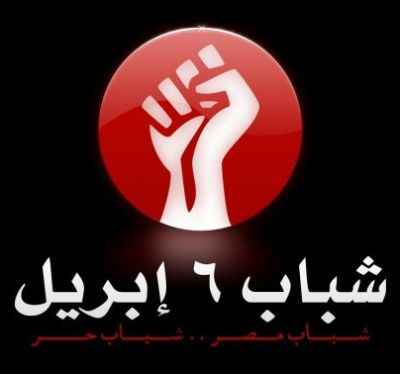
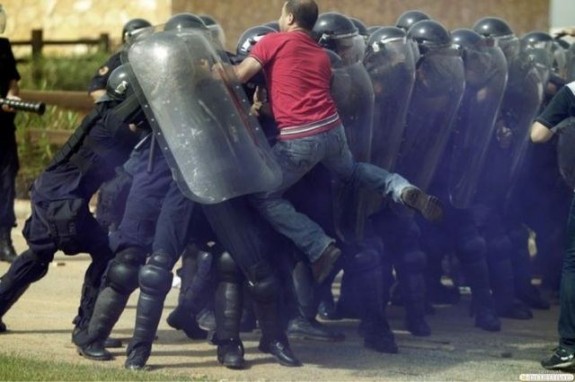
Cracks In The Neo-Liberal Empire
Political unrest in North Africa continue to ripple through the Middle East with some of the biggest anti-government demonstration yet in Bahrain. Meanwhile, the protests in Libya have turned deadly as the regime’s military has killed hundreds of demonstrators. New York Professor of Middle Eastern and Islamic Studies and History Zachary Lockman joins us with an analysis on the mass protests. In Egypt, Lockman says the old political parties in Egypt have no credibility.
Professor Zachary Lockman:
- Egypt: There were huge labor strikes going back to 2008. One of the groups that launched on January 25, called itself the April 6 youth movement – called itself that because there was supposed to be a big general strike of textile workers in 2008.
- The tremendous demand from Egyptians which help fuel the uprising, for some kind of change to the neo-liberal economic policies that Mubarak regime implemented 20 years ago.
- Egypt back in the 50s and 60s under the Nassir government carried through a series of social reforms.
- The largest estates held by the largest land owners were broken up, and millions of landless peasants even if they didn’t get land, they could farm some land and have reasonable security.
- Those kinds of things were rolled back in the 1990s under pressure from the IMF and the World Bank and with the approval of US government.
- Which means these farmers were kicked off the land in large number and ended up having to move to the cities in search of work for meager wages.
- Much of the public sector was privatized at fire sale prices to cronies of Mubarak.
- This is an opportunity when millions of Egyptian workers see an opportunity to create their own independent trade union movement. One doesn’t want to downplay the heroism of the young people who took to the streets on January 25.
- Mubarak was told to go by the generals who were told to preserve as much of the regime as possible in the face of this popular uprising. The generals now running Egypt are products of the Mubarak regime. The danger is that we’ll have the Mubarak regime without Mubarak.
- There is a new independent federation trade union being established in different industries. (Egypt)
- If there is something that approaches a more representative, democratic government, that government will be less likely to take orders from Washington in the way that Mubarak was very happy to.
- We’ve been waiting for something like this for decades, and in Egypt’s case for 30 years.
- It opens up dramatic new possibilities on a world scale. That boogieman of Islamic threat used to justify autocratic regimes which has been used across the region, is still there but as we’ve seen in Egypt and elsewhere, it’s time to put it aside.
- Since the 1970s, Saudi Arabia which has been on the defensive of more nationalist Pan Arab forces asserted it’s influence to buy friends and intimidate enemies and has been the bulwark of this conservative autocratic origin in the region.
Guest – Professor Zachary Lockman, New York Professor of Middle Eastern and Islamic Studies and History. He is the author of many books including Contending Visions of the Middle East: The History and Politics of Orientalism and “Explorations in the Field: Lost Voices and Emerging Practices in Egypt, 1882-1914.”Background: My main research and teaching field is the socioeconomic, cultural and political history of the modern Middle East, particularly the Mashriq. Under the influence of the “new social history” and “history from below” movements of the 1960s and 1970s, I did my doctoral dissertation on the emergence and evolution of a working class and labor movement in Egypt from the late nineteenth century until the Second World War; it was published in 1987 in a book co-authored with Joel Beinin. Harvard University, Ph. D., 1983.
———————————————————
Civil Liberties, Criminalizing Dissent, FBI Intrusion, Habeas Corpus, Human Rights, Torture, Truth to Power
Podcast: Play in new window | Download
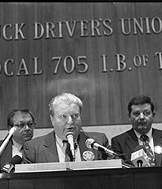
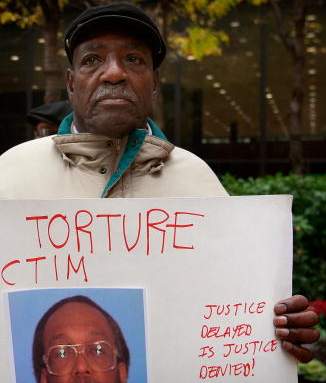

Jon Burge, Former Chicago Police Commander Sentenced to 4 ½ Years
Here on Law and Disorder we’ve reported on the ongoing developments of the Chicago Torture case and former Chicago police commander Jon Burge. Burge has been sentenced to 4 and a half years in prison for obstruction of justice and lying about torturing prisoners to obtain coerced confessions. The People’s Law Office brought the case in 2005 and the city of Chicago refused to settle while pumping hundreds of thousands of dollars into the case. Attorney with the People’s Law Office Flint Taylor says the city has spent over the 10 million dollars in aiding the defense of former Commander Jon Burge. Mr. Burge, who is 63 and in ill health, was fired from the Chicago Police Department in 1993. Attorney Flint Taylor’s Statement on Burge sentencing.
Attorney Flint Taylor:
- Burge did not do this alone. Many people working under him or with him, those people are under investigation.
- The city pours millions of dollars into the defense of Burge with private lawyers.
- There needs to compensation and treatment for all the men that were tortured that number is in the hundreds.
- We have a mayoral race here, with 3 Daley clones, none of them have addressed what the judge has said.
- The judge cited the city and the police department as well as the state’s attorneys office under Richard Daley has a dismal failure of leadership with regard to these cases.
- To be in the court room and hear a judge adopt our view that we fought so hard for, that was very rewarding.
- People look at the sentence, it’s a little less than five years, of course you should do much more than that for torture. The judge had her hands tied in some degree and she went as high as she could, going double on the guidelines that were recommended.
- We’ve been raising for decades why Richard Daley didn’t prosecute for torture when he was states attorney.
- The Obama Administration’s failure or refusal to prosecute admitted torturers, I’m talking about Bush who in his book admitted that he authorized water boarding.
- Chicago is a beacon of light in the fight against torture.
- We fought for decades here to get the prosecutions, to get the convictions, to get the sentence.
Guest – Attorney Flint Taylor, a graduate of Brown University and Northwestern University School of Law and a founding partner of the Peoples Law Office. More bio
—-
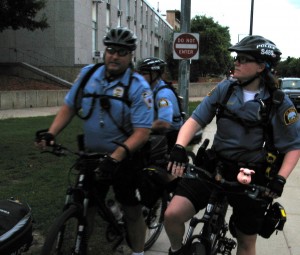

State of Democratic Rights – Bill Goodman
We’re joined today by attorney Bill Goodman former legal director for the Center for Constitutional Rights. Bill has been an extraordinary public interest lawyer for more than 30 years he’s served as counsel on issues including post-Katrina social justice, public housing, voting rights, the death penalty, living wage and human rights work in Haiti. Bill delivered a speech recently titled the State of Democratic Rights, defining democracy as we now understand it. Everyone of these defining points has been attacked or undermined and very little has been done to repair them under the Obama Administration.
Attorney Bill Goodman:
- If you want to define or crystallize what American democracy looks like in maybe 7 concepts you can break down pretty well.
- People can’t be detained without good cause and without being charged with a crime in front of an independent magistrate.
- They can’t be tortured or punished in ways that are extreme.
- They’re allowed to protest publicly. First Amendment rights.
- People can’t be discriminated against based upon religion.
- Separation of powers, so that no single branch of government becomes overly important or overreaches.
- Right to privacy. The government can’t break into our houses, unreasonable search and seizure.
- The right to free and fair elections and have our votes counted.
- From a lawyers perspective, what I see is an unwillingness of the courts.
- It’s shameful that these judges don’t step up to the plate and say that this should not happen and will not happen.
- Humanitarian Law v. Holder. There’s a very serious attempt to extend the concepts of terrorism to protesters right here in the United States.
- People who work on behalf of the environment, animal rights.
- The United States Supreme Court is happy to say that huge corporations can spend as much money as they possibly want to shift and tilt the electoral playing field right here in the United States.
- In order to strengthen the Constitution we need active aggressive organized movements.
- Within the end of a generation we can see the end of public education in the United States.
Guest – Bill Goodman, former legal director for the Center for Constitutional Rights has been an extraordinary public interest lawyer for over 30 years, and has served as counsel on issues including post-Katrina social justice, public housing, voting rights, the death penalty, living wage, civil liberties, educational reform, constitutional rights, human rights work in Haiti, and civil disobedience.
—
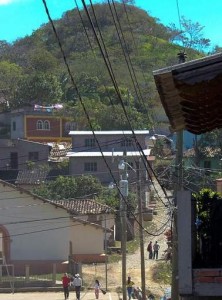
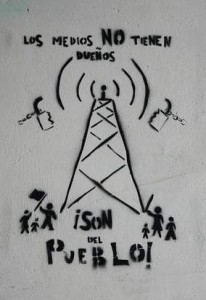
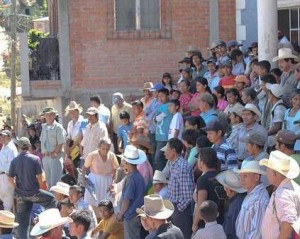
Post Coup Aftermath – Honduras: Sarah Hogarth
Today we are joined by legal worker Sarah Hogarth who has recently returned from a human rights delegation to Honduras through the Friendship Office of the Americas. We talk with her about her observations on the post coup human rights crisis in that country. As listeners may know On June 28, 2009, the Honduran military ousted the democratically elected President Manuel Zelaya. Former Parliamentary speaker Roberto Micheletti was sworn in as Zelaya’s replacement. Repressive tactics were used immediately after the coup–people on the front lines who oppose this regime have been beaten and illegally detained by the state. Journalists and LGBT activists were among the first to be targeted and killed. Dr James Cockcroft joins interview.
Sarah Hogarth/ James Cockcroft:
- The purpose was to meet with the movement leaders and the human rights organizations there.
- Honduras elections broadly considered to be illegitimate. The president who was overthrown, brought Honduras into ALBA.
- The outgoing president was flown out of a US military base in Honduras. The whole world knew this, but the United States said it wasn’t a coup. Now wikileaks shows that the ambassador was already telling Washington, it’s a coup.
- Zelaya was not the most radical of political leaders by any stretch.
- The resistance movement there is truly an inspiration. The new Honduran regime has instituted anti-terrorism legislation.
- The community radio movement in Honduras is the primary means, to disseminate real news about what’s happening.
- There was a time after the coup the radio equipment was not only shut down by the military but the equipment destroyed.
- Withing 48 hours, community radio stations from other Latin American countries rushed to the borders of Honduras to keep communications going into Honduras among the resistors.
- The people want the money flow to stop funding the new regime.
- Six thousand Marines were just sent to Costa Rica. Two military bases in Honduras, 6 in Columbia.
- The whole foreign policy of the United States has been and extension of the Bush policy of militarization of the world.
- This is being pitched in the context of the war on drugs. Disguise the imperial intervention with the war on drugs.
- There is an extremely small amount of arable land in Honduras.
- The level of unity among all these people is truly impressive.
- Another thing that is discouraging is the extreme privatization that has happened over the past year.
- They have given away the farm to these large corporations.
Guest – Sarah Hogarth, human rights activist in New York City. She is a freelance legal worker and writer and has recently returned from a human rights delegation to Honduras through the Friendship Office of the Americas. The delegation met with activists to learn about the human rights situation in Honduras in the one year since the elections in November 2009. In June 2009, democratically elected President of Honduras, Manuel Zelaya, was removed in a military coup d’etat.
Guest – Dr. James Cockcroft, historian and activist, Jim has written 45 books on Latin America. He’s a professor at the State University of New York and is a member of the International Committee for the Freedom of the Cuban Five.
—————————–
Civil Liberties, Criminalizing Dissent, FBI Intrusion, Habeas Corpus, Human Rights, Surveillance, Targeting Muslims, Truth to Power, War Resister
Podcast: Play in new window | Download
Updates:
—-

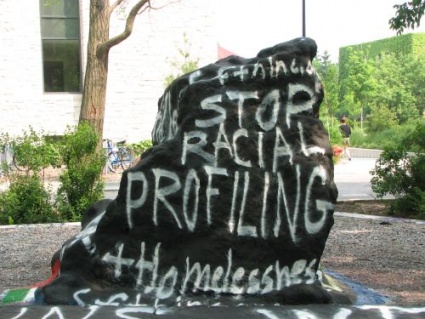
Right-Wing Firms Train Public Servants on Terror Threats
There is a sprawling hidden world of counter-terrorism organizations growing beyond control in the United States. Twenty-four of them were created by the end of 2001, including the Office of Homeland Security and the Foreign Terrorist Asset Tracking Task Force. The next year, 37 more were created to track weapons of mass destruction and collect threat tips. By 2009, nearly 260 organizations were created as 854 thousand civil servants, military personnel and private contractors with top-secret security clearances monitor national security concerns. However, according to a report from the Public Research Associates, those same concerns have bolstered a class of self-proclaimed terrorism experts who decry Islam as an evil religion of terrorists and routinely brand Muslims as primitive, vengeful, duplicitous, and belligerent people who oppress women and gays, and have values irreconcilable with “western Judeo-Christian civilization.”
In fact, when PRA discovered earlier this year that the Massachusetts Bay Transportation Authority (MBTA) had contracted with Security Solutions International to conduct a training on radical Islam, they notified the Muslim American Society, ACLU, and our other advocacy partners, who used PRA’s research to compel the MBTA to cancel the agency’s training.
Chip Berlet :
- As part of the Homeland Security Initiatives and working with the FBI in other aspects of the national security apparatus, there was a need to train thousands as part of a local state and federal counter-terrorism “experts.”
- Some of these trainings are quite good. The problem is that there are a handful of groups that train hundreds and hundreds of local, state and federal counter-terrorism experts, with rhetoric that is basically Islamophobic.
- In the late 1970s there was an attempt to restrain this illegal surveillance. I’d have to say right now it’s worse.
- What used to be done illegally and covertly is now done ostensibly legally and openly and in fact proudly by both Democrats and Republicans who should be ashamed.
- The whole strategic suspicious reporting initiative which basically is a pipeline for unverified rumor and innuendo through local police departments up through a chain of information agencies to the federal government. We know in Europe this kind of reporting is unconstitutional and bad for society.
- Now, everyone that was considered illegal and unconstitutional for which there were Congressional hearings and reforms under Jimmy Carter, now we do it.
- In proper training that is actually looking for criminal activity, not people of color who wear garb that we’re scared of. What’s going on here is untrained, badly trained officers are reporting the names of people up into a huge infrastructure of information data storage, based on bias they’ve not been trained to resist or confront within themselves.
- We described this whole process as a platform for prejudice in a report by Tom Cincotta
- Tom has on his wall a wall chart of all the agencies of this information reporting system and it has 150 dots so inter-connected, no one can control this.
- I’m urging people to form broad coalitions across the political spectrum.
Guest – Chip Berlet, (senior analyst) is a veteran freelance writer and photographer who specializes in investigating right-wing social movements, apocalyptic scapegoating and conspiracism, and authoritarianism. A PRA staffer since 1982, he has written, edited and co-authored numerous articles on right-wing activity and government repression for publications as varied as the Boston Globe, the New York Times, The Progressive, The Nation, The Humanist, and the St. Louis Journalism Review.
—
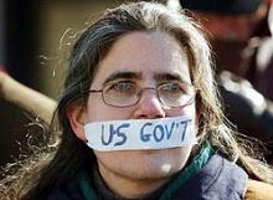

Lawyers You’ll Like – Sally Frank
For our Lawyers You’ll Like series, we’re delighted to have with us attorney, activist and Drake University law professor Sally Frank. Sally specializes in family law and domestic violence. Her activism began when she was a student at Princeton University. She filed suit against the Cottage Club, the Ivy Club and the Tiger Inn because they refused to admit her as a member based on gender. 13 years later she won the case and the three eating clubs became coed. Now Sally Frank lectures on women in law and encourages law students to be activists.
Attorney Sally Frank:
- They (Princeton) had 13 eating clubs and 3 of them were all male.
- I sued three of the clubs and the University, it began when I was a 19 year old junior at Princeton in 1979.
- My problem with it was they were very important institutions on campus, they ratified discrimination. A couple of them were the most prestigious clubs, if the most prestigious people discriminated, that kinda made it ok and it radiated it back onto to the campus in other aspects of life.
- The question was whether they were public accommodations or not.
- When I was in 5th grade I watched Inherit The Wind five times.
- Seeing William Kunstler and the Chicago 8 and how he supported the protesters and the rights of the people, and how Clarence Darrow did, made me want to be a people’s lawyer. Clerk for Emily Goodman as first job out of law school. I learned so much from her, I learned how to make a record.
- The Joint Terrorism Task Force began to investigate the peace movement in Des Moines, Iowa.
- There was question that my email was being watched. They subpoenaed 4 peace activists to a grand jury. Drake University was subpoenaed for information on the National Lawyers Guild members.
- After I found out about the Drake subpoena, there was a gag order on the subpoena.
- Leading up to 2008 RNC in Minneapolis, FBI leaving cards with peace activists in Iowa. What was going on here was an intelligence gathering that we were able to stop.
- Do not talk to the FBI, NSA, ICE. It’s very hard for people who were brought up to be polite, not to answer a question.
- We lived in a condo on the 8th floor and Bush came to the senior citizens center next door. We unfurled a banner from the balcony, a half hour before Bush was expected and we got a knock on the door by the secret service.
- I checked with the ACLU and they couldn’t bust in. Exigent circumstances.
- Most of what I do are civil cases.
- There’s certainly more government resentment and government attitude.
Guest – Attorney Sally Frank, longtime activist and law professor at Drake University. As a lawyer and law professor, Sally Frank represents protesters, victims of discrimination and poor people in housing. In her teaching and practice, Sally has helped the disenfranchised in family law and domestic abuse cases. “This is the work of the public interest lawyer. We see the problems of the system and work with our clients and others to achieve justice for them and for society as a whole.”
————————————————
Civil Liberties, Criminalizing Dissent, FBI Intrusion, Gaza, Human Rights, Political Prisoner, Prison Industry, Targeting Muslims, Torture, Truth to Power, War Resister
Podcast: Play in new window | Download
Updates:
—–

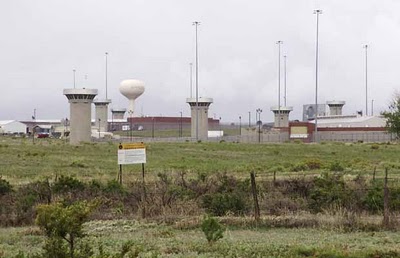
Ohio Supermax: Hunger Strike In Long Term Solitary Confinement
In an Ohio Super Max prison, 4 prisoners facing execution are confined to permanent restrictive solitary confinement. They’re on a hunger strike, bringing attention to their requests to simply be placed on death row. What’s the difference? Death row isn’t as restrictive as permanent solitary confinement. Jules Lobel, Vice President of the Center for Constitutional Rights and Professor of Law at the University of Pittsburgh explains in detail the differences of regular prison, death row and solitary confinement conditions.
Jules is working to defend the prisoners, he says that long term, essentially permanent and very harsh solitary confinement is both cruel and unusual punishment that violates due process requirement of annual review. The state of Ohio has decided to keep these four in solitary confinement permanently. It’s not only in Ohio, permanent solitary confinement is becoming a problem nationally, particularly with people convicted of terrorism related offenses, including material aid to terrorism.
Jules Lobel:
Guest – Jules Lobel, through the U.S. Center for Constitutional Rights, Jules has litigated important issues regarding the application of international law in the U.S. courts. In the late 1980’s, he advised the Nicaraguan government on the development of its first democratic constitution, and has also advised the Burundi government on constitutional law issues. Professor Lobel is editor of a text on civil rights litigation and of a collection of essays on the U.S. Constitution, A Less Than Perfect Union (Monthly Review Press, 1988). He is author of numerous articles on international law, foreign affairs, and the U.S. Constitution in publications including Yale Law Journal, Harvard International Law Journal, Cornell Law Review, and Virginia Law Review. He is a member of the American Society of International Law
——
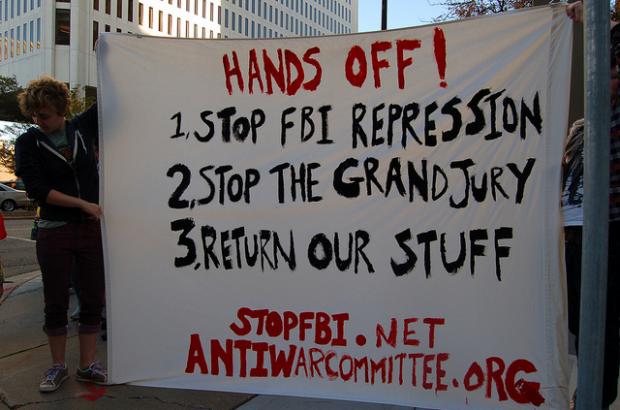
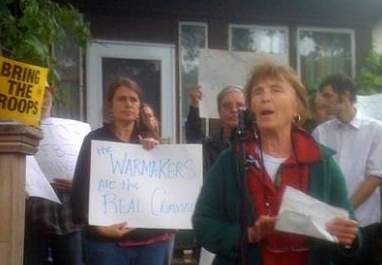
Defending Grand Jury Protesters
As many listeners know, last September in a nationally coordinated raid, the FBI targeted anti-war and Palestinian solidarity activists, raided their homes and subpoenaed them to appear before a grand jury. The 13 people all of whom were critical of US foreign policy, later withdrew and asserted their right to remain silent. But in early December of 2010 subpoenas were reissued against 4 of those targeted in the raids. Three women in Minneapolis, Tracy Molm, Anh Pham, and Sara Martin were sent reactivated subpoenas by Fitzgerald’s office and new Grand Jury dates.
We’re joined by Chicago based journalist and activist Maureen Murphy who also received a new subpoena. Maureen is managing editor at the website Electronic Intifada, though the site is not being targeted in the FBI probe. In a statement, the Electronic Intifada said, quote, “Although The Electronic Intifada itself has not been a target, we consider the grand jury investigation and all of the subpoenas to be part of a broad attack on the anti-war and Palestine solidarity movements and a threat to all of our rights.”
We are also joined by regular guest, attorney Michael Deutsch from the People’s Law Office and is working with the defense committee.
Maureen Murphy:
- I don’t know why its happening, we do know that no crime has been identified. There’s nothing written on my subpoena that I need to bring any documents.
- We believe that the government is subpoenaing us so that we come before a grand jury and name names, and tell them how we organize so they can further disrupt their movement. I’m one of 23 activists now who have gotten the knock at the door. My subpoena says nothing but show up, so I think this is really a fishing expedition.
- In one home they took everything with the word Palestine on it.
- The government has expended a lot of resources on an investigation of a group that has always worked pubicly to advocate for a more just US policy. I was visited by the FBI on December 21, 2010.
- A national committee that has formed around the raids and subpoenas is calling for a day of action January 25, in front of federal buildings and FBI headquarters.
- I’ve already stated that I’m not going to testify.
———
Michael Deutsch:
- In December the FBI went out with a stack of subpoenas, and wound up subpoenaing 9 additional people in the Chicago area which then makes 23.
- These people who are subpoenaed are all active in Palestinian support work. Arab American Action Network, Palestinian Support Group. This next wave of subpoenas are people who are they’re trying to gather information from.
- I’ve never in all my experience seen so many people subpoenaed to a grand jury.
- A lot of the Palestine support work has gone on in Chicago.
- Originally 14 people were subpoenaed and each one through their lawyer said they weren’t not going to voluntarily come in. Now they haven’t decided to enforce the subpoena, they said well get back to you when we decide what we’re going to do.
- There are 23 people lined up trying to figure out what the next step of the government is.
- These prosecutors don’t seem to know who they’re dealing with. They see the grand jury as a tool of oppression.
- I believe that the Israeli security apparatus is involved in supplying information to the US government.
- There’s no evidence here of any type of violence or weapons. We’re dealing with advocacy and associations.
- Despite Holder v the Humanitarian Law Project, we believe that it’s a total violation of the First Amendment.
- The underlying tenor is going after people because of their political ideology.
Guest – Maureen Murphy is a journalist and Palestine solidarity activist from Chicago. She spent a few years living and traveling throughout the Middle East, interning for the Palestinian human rights organization Al-Haq in the occupied West Bank in 2004-06 before she was denied entry and deported by the Israeli government. She also lived in Lebanon in 2007, learning about the human rights situation for Palestine refugees and the impact of U.S. foreign policy there.
Guest – Michael Deutsch, attorney with the People’s Law Office in Chicago.




























